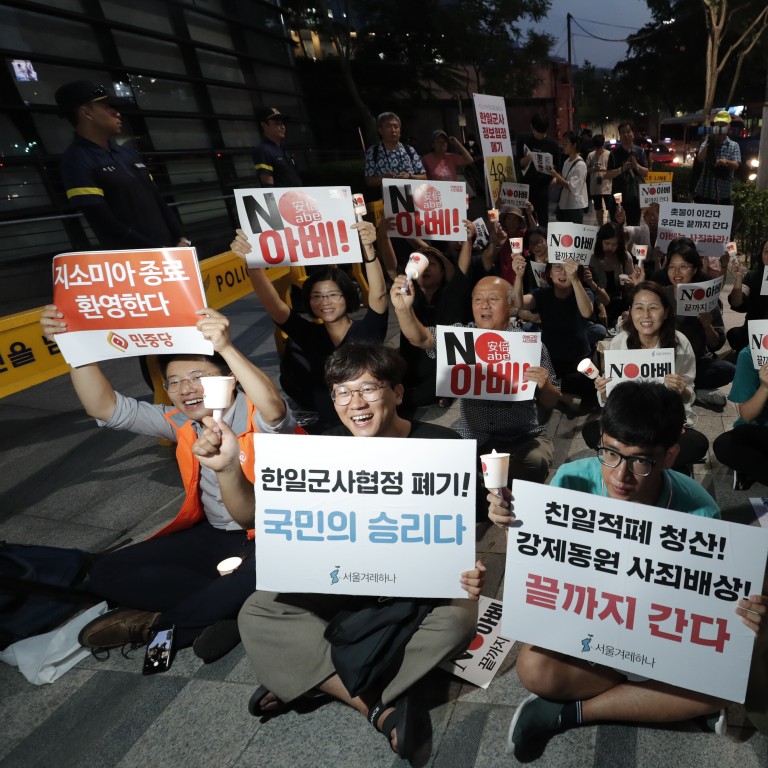
Japan says South Korea fails to understand North Korea threat with ending of intelligence pact
- Abe said Tokyo still expected Seoul to keep its promises on the issue of wartime forced labour and to work to rebuild trust
- A senior South Korean official said the country will share intelligence with Japan through a three-way channel involving the US
“North Korea’s repeated missile tests threaten national security, and cooperating between Japan and South Korea and with the US is crucial,” Iwaya told reporters.
“We strongly urge them to make a wise decision.”
What’s driving Japan’s escalating feud with South Korea?
Ties between the East Asian neighbours, both important US allies, were already at their lowest ebb in years before South Korea’s decision to end the General Security of Military Information Agreement (GSOMIA).
The dispute over forced labourers has also spilled over into trade, with Tokyo putting restrictions on exports of semiconductor materials to Seoul and removing it from a list of nations given preferential trading terms.
Under the GSOMIA, which had been due for automatic renewal on Saturday, the two countries shared information on the threat posed by North Korea’s missile and nuclear programmes.
South Korea will share intelligence with Japan through a three-way channel involving the US, South Korea’s deputy national security adviser Kim Hyun-chong said on Friday, meaning Japan and South Korea are likely to revert to sharing intelligence through the American military.
South Korea doubles radiation checks on Japanese food
Washington, which fears weakened security cooperation in the region, expressed dismay over South Korea’s decision and urged the two countries to continue to engage with each other.
Kim said the decision to end the intelligence-sharing deal was inevitable as Japan had ignored Seoul’s call for dialogue to resolve their disputes.
The US had proposed a “standstill agreement” and Seoul had welcomed it, but “Japan’s response went beyond a simple ‘No’. Japan continued to ignore us in a clear affront to our national pride and a breach of diplomatic etiquette”,” Kim said.
Boss of South Korean cosmetics firm quits over video clip praising Japan
“I think this situation will be an opportunity to upgrade the South Korea-US alliance in close cooperation,” he added.
The Trilateral Information-Sharing Agreement (TISA) between the US, Japan and South Korea, which Japan and South Korea will revert to after their GSOMIA ends, specifies a narrower range of information to be shared, Kim said.
Under the TISA, the countries can share information about North Korean nuclear and missile threats, while GSOMIA’s range was wider, including information “directly or indirectly related to” North Korean nuclear or missile threats, Kim said.
Additional reporting by Park Chan-kyong

